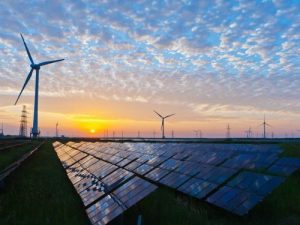Energy efficiency plays a crucial role in building a sustainable future and addressing the challenges posed by climate change. It is the ability to utilize energy resources more efficiently, thereby reducing energy waste and minimizing environmental impacts. With the growing demand for energy worldwide and increasing concerns about depleting fossil fuel reserves, it has become imperative to prioritize energy efficiency in all sectors, including residential, commercial, and industrial.
Improved energy efficiency offers numerous benefits, both at an individual and societal level. At an individual level, it helps lower energy bills, saving money for households and businesses. Additionally, by reducing the consumption of fossil fuels, it enables individuals and organizations to contribute to a greener environment by reducing greenhouse gas emissions. Moreover, energy efficiency can enhance energy security by reducing reliance on foreign energy sources and improving the resilience of the energy infrastructure. At a societal level, energy efficiency contributes to economic growth by creating job opportunities in sectors such as renewable energy technologies and building renovations. It also helps in achieving national energy goals and commitments set by governments around the world.
The Importance of Insulation for Energy Efficiency
Insulation is a key component in achieving optimal energy efficiency in buildings. It helps to reduce heat transfer between the interior and exterior of a building, thereby minimizing the need for excessive heating or cooling. By providing an effective thermal barrier, insulation prevents the escape of conditioned air and reduces the infiltration of outdoor air, resulting in significant energy savings.

Insulation plays a crucial role in both residential and commercial settings. In homes, proper insulation can lead to reduced energy consumption, lower utility bills, and increased comfort. Insulated walls, roofs, and floors help maintain a consistent indoor temperature, reducing the reliance on heating and air conditioning systems. Additionally, insulation can also contribute to noise reduction and improve overall indoor air quality.
Commercial buildings can benefit greatly from insulation as well. Effective insulation can lead to substantial energy savings by reducing heating and cooling loads. This not only lowers operational costs but also contributes to a more sustainable and environmentally friendly business model. In fact, according to click for details, proper insulation can save up to 35% on energy bills for commercial buildings. With such significant cost savings potential, investing in insulation becomes a wise choice for businesses aiming to reduce their carbon footprint and increase their bottom line.
In conclusion, energy efficiency plays a critical role in addressing the challenges of climate change and building a sustainable future. It offers both individual and societal benefits, including lower energy bills, reduced greenhouse gas emissions, enhanced energy security, and economic growth. One key component in achieving optimal energy efficiency is insulation. Whether in residential or commercial settings, proper insulation can lead to significant energy savings, lower utility bills, increased comfort, noise reduction, and improved indoor air quality. For businesses, investing in insulation can result in substantial cost savings and contribute to a more sustainable business model. With the potential to save up to 35% on energy bills for commercial buildings, insulation becomes a wise choice for reducing carbon footprint and increasing the bottom line.
